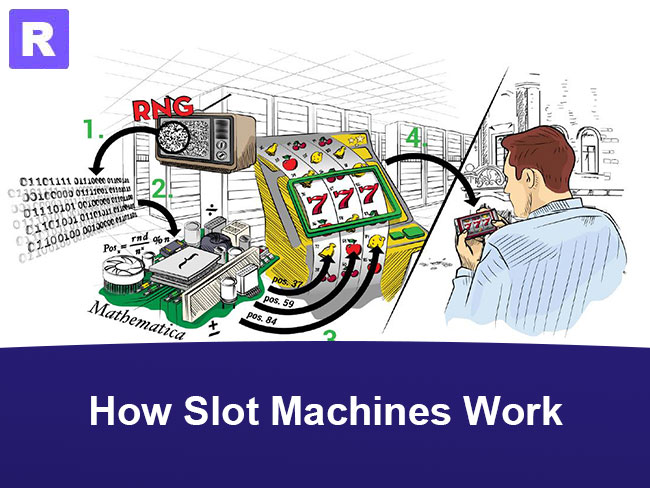Slot machines are incredibly popular in any casino environment, yet many individuals don’t fully understand their mechanics. Misunderstandings about their function persist, and some take advantage of the public’s lack of knowledge for personal gain. Check out our page about common myths regarding slot machines to discover our stance on such conduct.
The purpose of this page is to deliver a comprehensive overview of how slot machines operate. After gaining insight into the game’s mechanics, your interest in this genre of gaming could either decline or grow, depending on your outlook. Even though slots can provide enjoyment, they are exceptionally profitable for casinos due to their operational structures.
Are Online Slots Fair?
If online slots were rigged, most would already have been shut down. It’s a significant concern for online gamers, which is why VSO endorses only trustworthy casinos. Leading gaming jurisdictions such as the UK, Malta, and Gibraltar impose regulations to ensure fair and secure gaming, giving every player an equal chance to win.
The Return to Player (RTP) percentage reveals a slot’s payout rate. For example, a slot with a 96% RTP will pay $96 out of every $100 wagered. This process is independently monitored and verified to ensure a safe gaming space.
Our main objective is to help all readers make knowledgeable decisions when engaging with online games. By following our recommendations, you can steer clear of the risks associated with rigged slots.
Understanding Random Number Generators
Slot machines rely on a random number generator. Even early slot machines, which were mechanical like coin slots, used a random number generator, akin to a roulette wheel, deck of cards, or pair of dice. Modern slots utilize computer algorithms to generate random numbers which decide game results.
It’s important to understand that the outcomes are genuinely random. The game doesn’t adhere to any cyclical patterns, and slot jackpots cannot be foreseen. Contrary to common belief, slots don’t have hot or cold streaks; this perception is only recognized after the fact. Similar to predicting the next card in a deck, it’s impossible to forecast slot outcomes with certainty.
Casino House Edge
The advantage always belongs to the casino when it comes to gambling. This principle is valid for all gambling games, mainly because of the casino’s mathematical strategies and scale advantage. Every bet on any casino game has a payout that’s lower than the actual odds of winning.
For example, in roulette, the odds of hitting a specific number are 37 to 1, but betting on that number pays out only at 35 to 1. The casino’s edge in such situations is quite apparent, isn’t it?
Slot machines function similarly.
Slot Machine Reels and Stops
Slot machines typically feature either three or five reels. The reel is the visual element that rotates on the front of the machine. It consists of various symbols, and aligning specific combinations of symbols results in cash prizes. The more improbable it is to align a certain set of symbols, the higher the payout for that combination.
Traditionally, these reels were physical metal hoops, but with the advent of computerized slot machines, they are often just graphical representations on a screen. Even in cases where physical reels are present, the final outcome is determined by the computer’s random number generator.
The points at which these reels come to a stop are known as “stops”. Reels can halt at a symbol or at an empty space between symbols. In early slot machine models, each symbol had an equal chance of appearing, but with the introduction of computer technology, the odds have become more complex. For example, a cherry symbol might have a 1 in 50 chance of showing up on a spin, while an orange might appear 1 in every 5 spins, or any other combination.
Early slot machines may have had only 10 stops per reel, whereas today it is common to have between 30 and 50 stops per reel. A greater number of stops on a reel makes it easier to offer large jackpots. For instance, if a game has 10 stops on each reel, with an equal probability of landing on each stop, the odds of hitting any specific combination would be 1/10 X 1/10 X 1/10, or 1/1000. If the payout exceeds 1000 units, the game is operating at a loss.
Modern computers can adjust these probabilities using a weighted system.
A Deeper Dive into Slot Machine Odds
The weighting system determines the likelihood of a specific stop being selected. Suppose there is a slot machine game with 10 symbols, but one symbol is unique and appears only once every 100 spins. The chances of getting 3 of that symbol are 1/100 X 1/100 X 1/100, or 1/1,000,000. It would be feasible to offer a payout of $1 million for that combination and still break even in the long run. This kind of gameplay is favored by both casinos and players.
Another symbol might be set to appear half the time, reducing the chances of hitting that symbol to as low as ½ X ½ X ½, or 1/6. If the payout for this symbol is 2 to 1, the casino can still generate a significant profit while players believe they are winning frequently.
The predetermined sheet governs the odds. Every modern slot machine is equipped with a predetermined sheet that outlines the weightings for each stop on the reel, including blank spaces. This sheet establishes the odds and the casino’s advantage in a slot machine game as a fixed quantity—known to the casino. Gambling establishments keep these sheets confidential, so players rarely have a clear understanding of the odds, house edge, or payback percentage.
Another key term to grasp is the “payback percentage”. This figure is a statistical forecast of the amount of money that the machine will return over an infinite number of spins. For instance, if a machine has a 97% payback rate, over a significant number of spins, the average return should be close to $3 for every $100 wagered. Casinos differentiate between the theoretical payback percentage and the actual machine returns, but one thing is certain: slot machines are highly profitable for casinos.






